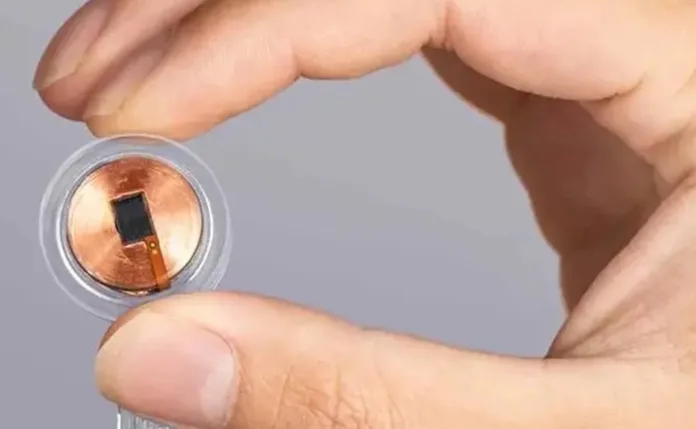Elon Musk’s brain technology company, Neuralink, announced plans to begin a new round of human tests next month for a device that turns thoughts into written words. The trial, set to launch in October, focuses on helping people who have trouble speaking due to illness or injury communicate more easily by reading signals directly from their brains.
Neuralink’s implant, a small chip about the size of a coin, is placed in the brain through a quick surgery using a robot. Thin wires connect it to nerve cells that control speech.
The device picks up brain activity when someone thinks about words and turns those signals into text on a screen or device. This could let users “type” messages just by imagining them, without moving their hands or mouth.
The trial will take place in the United States, working with doctors at the University of California, Santa Barbara, and experts from Spain.
It has approval from the Food and Drug Administration (FDA), the U.S. health agency that checks medical devices for safety. Neuralink’s president, DJ Seo, shared the news during a talk in Seoul, South Korea, this week.
He said the goal is to help people with speech problems, like those affected by strokes or conditions such as ALS (a disease that weakens muscles), share their thoughts faster than current tools allow.
This test builds on Neuralink’s earlier work. The company started putting implants in people last year to help those with paralysis move computer cursors or play simple games using only their minds. Now, the focus shifts to speech.
Seo explained that the implant could one day let users talk to smart computers or AI helpers at the speed of thought, even faster than speaking out loud.
He imagines a future where healthy people might get the device to boost their abilities, like asking questions to AI and getting answers through earbuds.
Neuralink is one of several companies exploring brain links to computers. Others, like Synchron and Blackrock Neurotech, are also testing implants for similar goals. But Neuralink stands out for its bold plans.
Musk, who started the company in 2016, wants to create a “bridge” between human brains and machines to keep people competitive as computers get smarter. The firm aims to implant devices in hundreds of people soon and up to 20,000 a year by 2031.
The October trial comes a bit later than first planned. In July, Neuralink hoped to start by the end of September.
The company has five other tests running in places like the U.S., Canada, the UK, and the United Arab Emirates. Past issues, like FDA worries about safety in 2022, delayed early steps, but Neuralink has made fixes to move forward.
Experts see promise but caution that the tech is still young. Turning thoughts into clear text requires smart computer programs to guess words from brain patterns accurately. Success could change lives for millions with speech challenges, but full consumer versions are years away.
Neuralink has not shared how many people will join the trial or exact locations yet. Musk, active on social media, posted about the news, saying, “Thoughts to text is a game-changer for communication.” As October nears, the world watches to see if this step brings Musk’s vision closer to reality.








